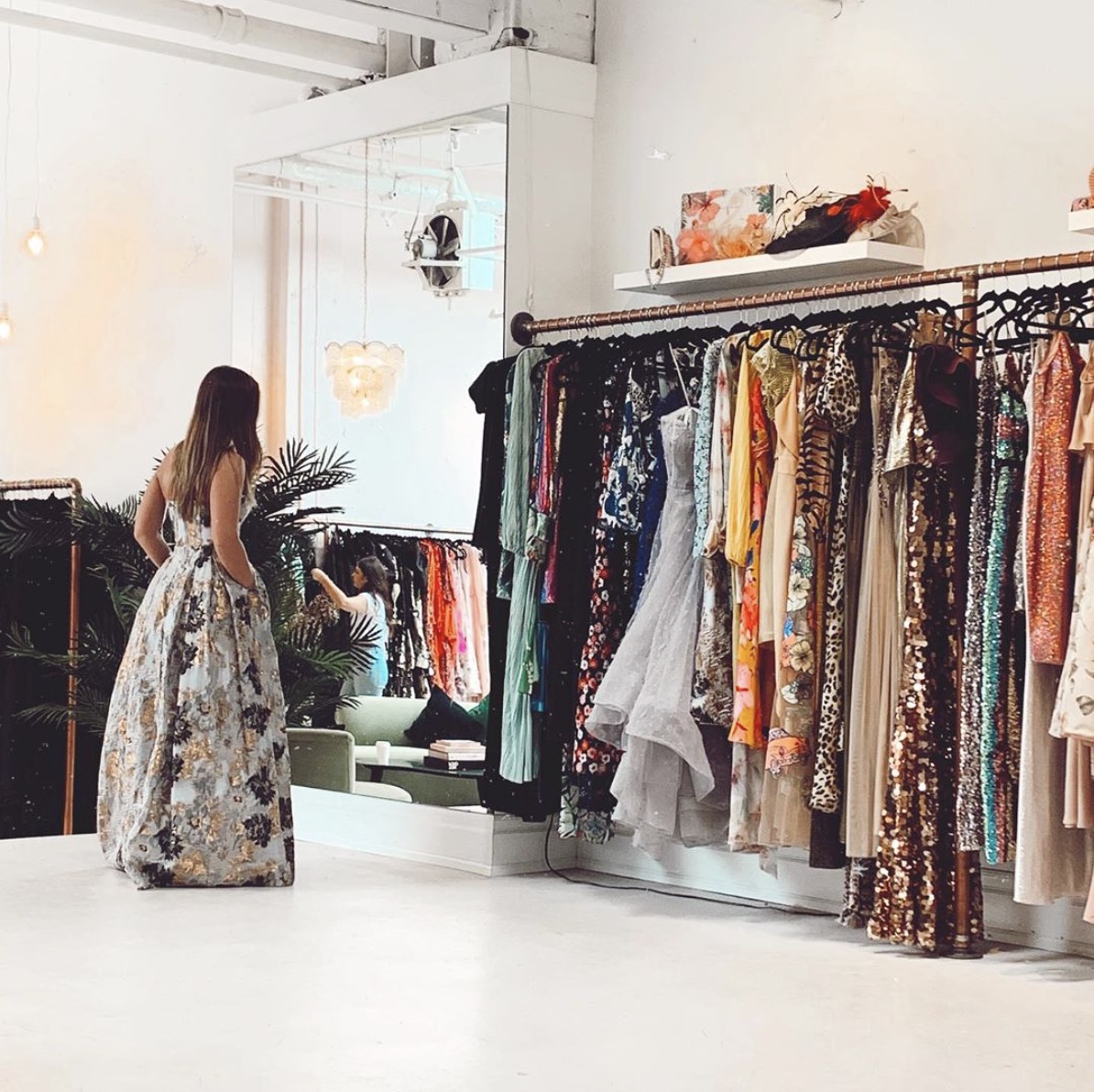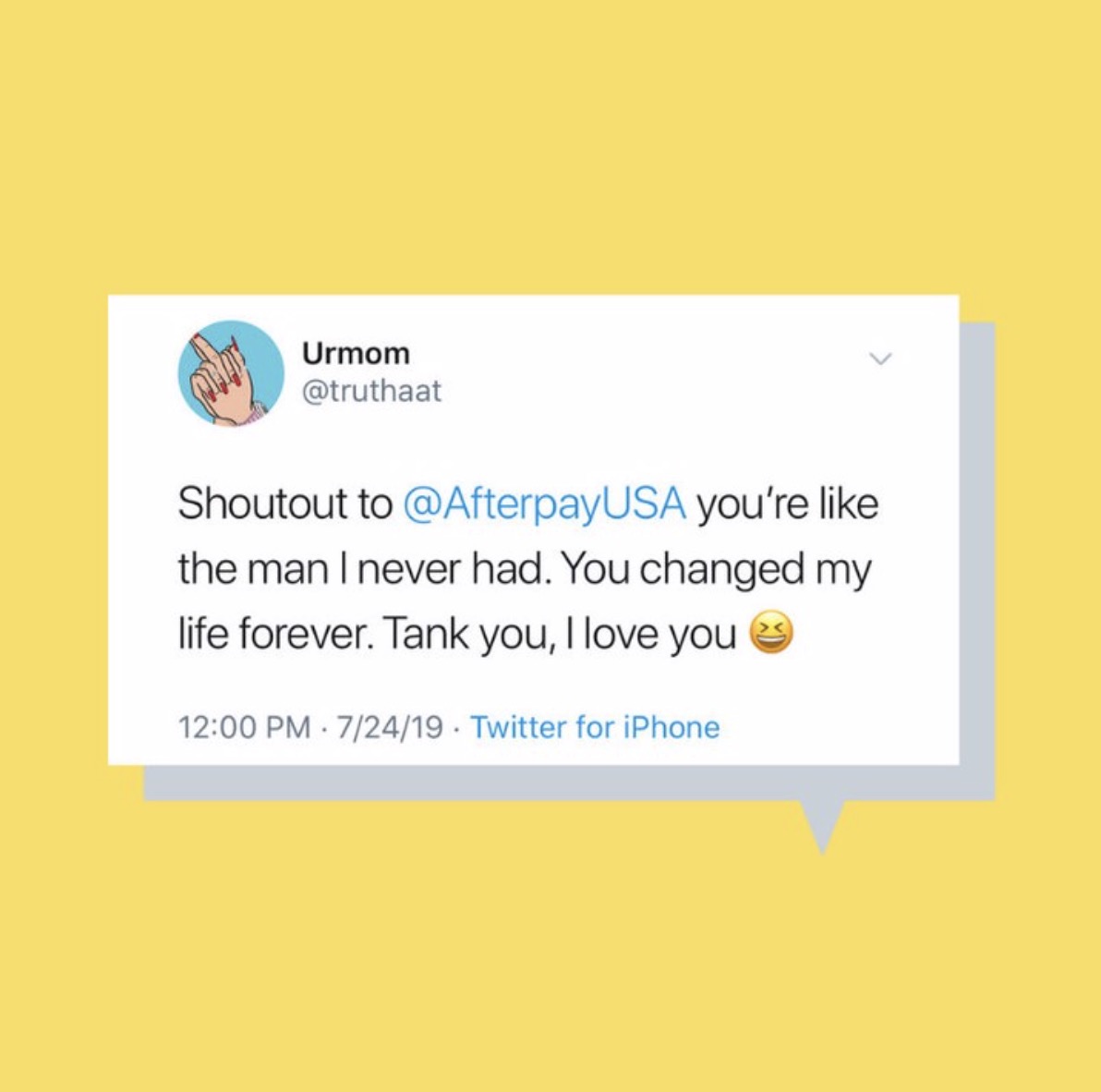Buy now, pay later seems like the best thing to happen to cash-strapped shoppers since layaway. Supported by the emergence of a handful of payment solution providers, a growing number of retailers are jumping on board, allowing customers to pay for apparel and other products in installments.
Of course, the buy-now, pay-later concept is not a new one; furniture and electronics retailers have offered such programs for decades (cue the Leon’s “ho-ho-hold the payment commercials – if you know, you know).
The move to financing smaller, relatively less expensive things like articles of clothing is clearly a sign of the times – and one that naturally targets struggling millennials.

While society seems more image-focused than ever fuelled by social media and its overnight celebrities, most of us can’t afford to keep up with the Joneses, one perfectly filtered photo at a time. Rather than stocking up on trendy and affordable clothing to help the double-tap cause, the emergence of buy-now, pay-later policies in the apparel world comes at a time when the younger generation is moving away from fast fashion. Folks are opting instead to purchase better quality pieces that won’t end up in landfills any time soon.
While the cost-per-wear ratio of spending more on quality and classic items may make financial sense once you break it down, the reality is that most young people don’t have a lot of cash at their disposal to drop all at once.
Sky-high tuition costs (and subsequent student debt), lack of job security, a growing freelance economy, and even social media pressures have rendered the millennial set, frankly, pretty broke. Some have even aptly coined millennials as “Generation Broke.”
So, they fake it until they make it and things like renting and now, essentially financing clothing helps their cause.

In June 2018, millennial favourite Urban Outfitters announced it would accept interest-free installation payments thanks to a partnership with payment company Afterpay. The program also includes its brands Anthropologie and Free People – stores that cater predominantly to the under-35 set.
Following the lead, Abercrombie and Fitch launched a buy-now, pay-later program on July 1, enabling shoppers to make up to four interest-free payments in installments over a two-month period on online purchases.

The move is a result of a new partnership with Swedish payment solution provider Klarna Pay Later – a major competitor of Afterpay. Klarna is already available for Abercrombie shoppers in Germany, and will be rolled out in the U.S. and U.K., and hopefully Canada later this year. The program includes Abercrombie Kids and Hollister and Co.
Fast fashion retailer H&M has also signed with the payment company, as have a number of popular brands, like Adidas, Sephora ASOS, Nike, Sonos, IKEA and JD Sports.
Given the growing number of retailers jumping on board, it’s safe to say we can expect a growing number of payment companies like Afterpay and Klarna.

On July 31, Sezzle, a U.S.-based payment provider that’s been on the scene since 2017, went public on the Australian Securities Exchange. In its first day, the stock jumped 80 per cent.
While becoming a regular buy-now, pay-later customer may seem like a savvy financial move, Business Insider highlights that such policies can actually encourage shoppers to spend more money in the same way that a credit card can.
Because a hefty price tag is more manageable in installments, customers are less likely to wait for sales or purchase a more affordable alternative.
So, while they may help your closet, buy-now, pay-later policies may actually hurt your wallet.
Featured Image: Pixabay
Articles You May Be Interested In:
6 Women On The Fast Fashion Pieces That Stood The Test Of Time
My Honest Opinion On Anthropologie’s New Plus Size Collection
Why Millennials Are Ditching Diamond Engagement Rings
How Shopping Websites Trick You Into Buying Things You Don’t Need
How I Got Duped Into Buying A Scam Product On Instagram
